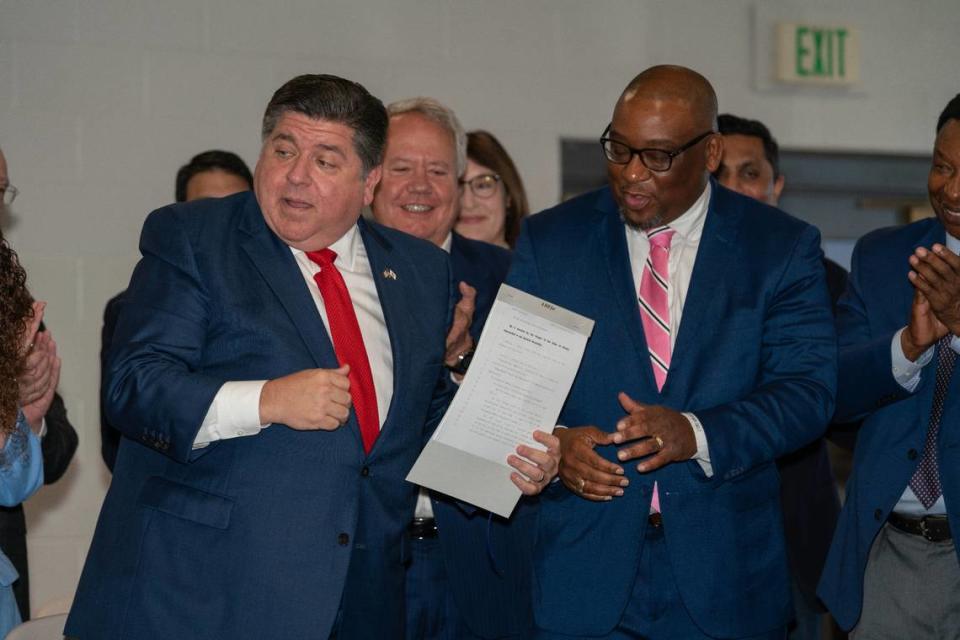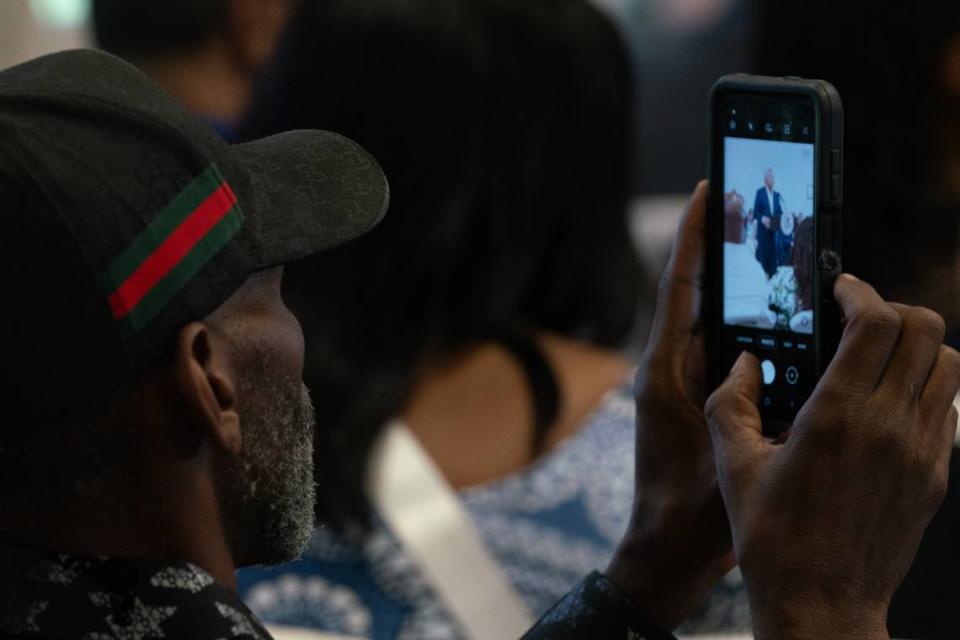Illinois to invest $20M in effort to bring grocery stores to ‘food deserts’
Tyrone Echols has served as Venice’s mayor for 40 years and says it has been a long time since there was a grocery store in town.
But on Friday he welcomed Gov. J.B. Pritzker to a bill signing ceremony for legislation that authorizes $20 million in state money to help keep small grocery stores open or help get one started in “food deserts” like Venice.
Pritzker said in a news conference in the Venice Recreation Hall that a recent study showed there were over 3 million Illinois residents who live in food deserts.
“When our residents struggle because they can’t find affordable, nutritious food to put on the table, that’s a problem that requires community input and help from our elected leaders,” Pritzker said.
Grocery stores can have “soaring maintenance costs” because of decades-old refrigeration, he said.
“Well, 20% of the Illinois Grocery Initiative will help these stores replace aging equipment with energy efficient alternatives, keeping costs down and most importantly, keeping their doors open,” Pritzker said.
Pritzker, a Democrat, praised the bipartisan support for the bill from Democrats and Republicans in the General Assembly.
The Senate approved the bill 57-0 and the House vote was 96-17 this spring.

Sen. Dale Fowler, R-Harrisburg, represents the 59th Senate District and said the state financial assistance would aid rural residents in his district in Southern Illinois. He noted one county in his district, Gallatin County along the Ohio River, does not have a single grocery store.
The legislation — formerly Senate Bill 850 — defines a food desert as a rural area with 33% of the population or at least 500 residents living more than 10 miles from the nearest grocery store or an urban area with with 33% of the population or at least 500 residents living more than one-half mile from the nearest grocery store.
Rep. Mary Beth Canty, D-Arlington Heights, said this funding could help reduce crime in food deserts.
“When people are hungry, people get desperate and desperate people do desperate things,” she said.
Canty said “some research suggests that food deserts may influence” the incidents of violent crimes in these communities.
She supported the bill because it addresses one of the “root causes of violence.”
Pritzker said those interested seeking grants through this “pilot” program can anticipate seeing information on the Illinois Department of Commerce and Economic Opportunity website at dceo.illinois.gov.
“We’re working as fast as we can,” Pritzker said in response to a question about when the assistance will be available.
Here are highlights of the program as cited in a news release from Pritzker’s office Friday:
▪ The program will provide support to local governments and independent grocers opening grocery stores in food deserts, “which includes providing technical assistance, feasibility studies and marketing, support with operational costs and access to capital funding for the acquisition of land, facilities or equipment.”
▪ Up to 20 percent of program funding may be used for grants for “energy-efficient equipment upgrades to existing independently owned, cooperative, and for-profit grocery stores.”
▪ The Department of Commerce and Economic Opportunity will commission a study to “explore reasons for market declines, historical disparities for access to food, potential policy solutions, geographic trends and the role of independent grocers.”


